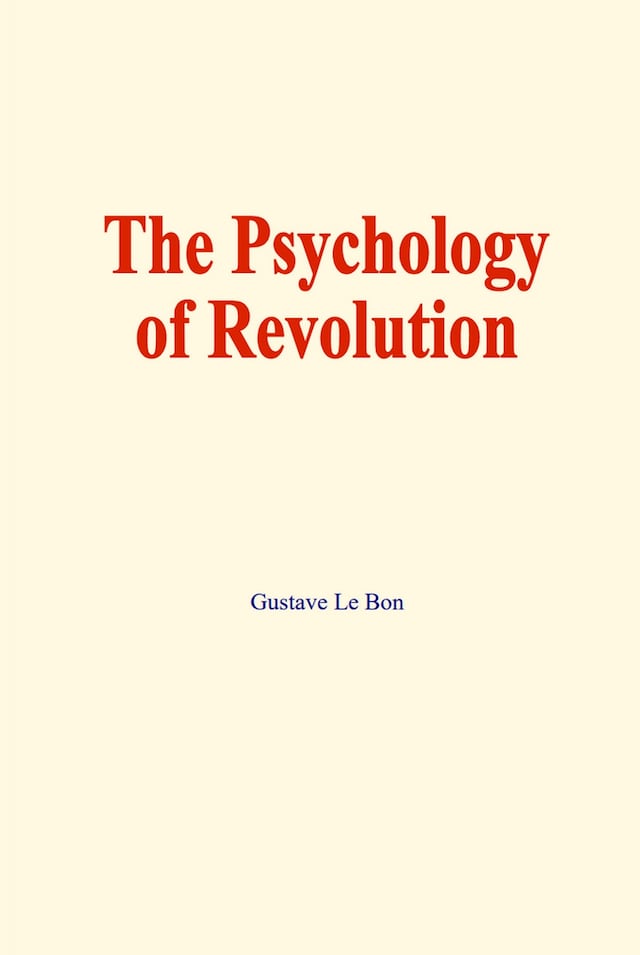
The psychology of revolution
Description of book
Despite its conjectural side, history has not been free from this universal revision. There is no longer a single one of its phases of which we can say that it is certainly known. What appeared to be definitely acquired is now once more put in question.
Among the events whose study seemed completed was the French Revolution. Analysed by several generations of writers, one might suppose it to be perfectly elucidated. What new thing can be said of it, except in modification of some of its details? And yet its most positive defenders are beginning to hesitate in their judgments. Ancient evidence proves to be far from impeccable. The faith in dogmas once held sacred is shaken. The latest literature of the Revolution betrays these uncertainties. Having related, men are more and more chary of drawing conclusions. Not only are the heroes of this great drama discussed without indulgence, but thinkers are asking whether the new dispensation which followed the ancien regime would not have established itself naturally, without violence, in the course of progressive civilisation. The results obtained no longer seem in correspondence either with their immediate cost or with the remoter consequences which the Revolution evoked from the possibilities of history.
ABOUT THE AUTHOR
Gustave Le Bon (1841–1931) was a French social psychologist, sociologist, and anthropologist known for his work in the fields of crowd psychology and mob behavior. Born on May 7, 1841, in Nogent-le-Rotrou, France, Le Bon made significant contributions to the understanding of collective behavior and the psychology of groups.
 Gustave le Bon
Gustave le Bon 262 Pages
262 Pages